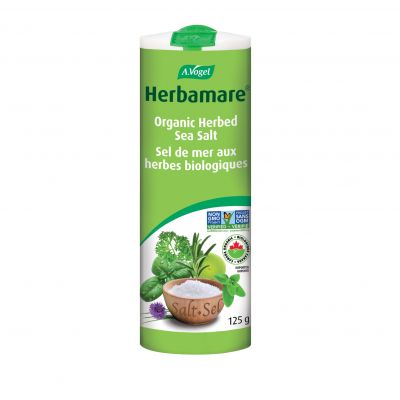Understanding the Gut-Well-being Connection
The gut, often referred to as the "second brain," is home to trillions of bacteria, collectively known as the gut microbiota. These bacteria aid in digestion, produce essential vitamins, regulate metabolism, support immune function, and even influence our mood and cognitive abilities. When the balance of gut bacteria is disrupted, it can lead to various health issues, including digestive disorders, immune system dysfunction, mental health problems, and more.
The Gut Microbiota and its Role
The gut microbiota refers to the complex community of microorganisms, including bacteria, fungi, viruses, and other microbes, residing in our digestive system. These microorganisms play a crucial role in maintaining gut health and have far-reaching effects on our overall well-being. Research has shown that the gut microbiota interacts with various bodily systems, including the immune, nervous, and endocrine systems, influencing numerous physiological processes.
Impact on Digestion and Nutrient Absorption
A healthy gut microbiota contributes to proper digestion and nutrient absorption. Beneficial bacteria in the gut help break down complex carbohydrates, proteins, and fats that our bodies struggle to digest independently. They produce enzymes that aid in the breakdown of food, making nutrients more accessible for absorption in the intestines. When the gut microbiota is imbalanced or compromised, it can lead to digestive issues such as bloating, gas, diarrhea, or constipation, affecting overall well-being.
Immune System Regulation
Approximately 70-80% of our immune system is located in the gut. The gut microbiota plays a vital role in training and regulating the immune system's response to pathogens. Beneficial gut bacteria stimulate the development of immune cells, enhance the production of antibodies, and help maintain the integrity of the gut barrier. A healthy gut microbiota supports a well-balanced immune response, reducing the risk of allergies, autoimmune disorders, and infections.
Neurotransmitters and Mental Health
The gut-brain axis is a bidirectional communication pathway between the gut and the brain. The gut microbiota influences this axis by producing neurotransmitters and metabolites that can impact brain function and mental health. For example, certain gut bacteria produce serotonin, a neurotransmitter known for its role in mood regulation. Imbalances in gut bacteria have been associated with conditions such as anxiety, depression, and even neurodegenerative disorders. By maintaining a healthy gut microbiota, we can support optimal brain function and promote mental well-being.
Inflammation and Systemic Effects
An imbalance in the gut microbiota can lead to chronic low-grade inflammation in the body. This inflammation, often referred to as "leaky gut" or increased intestinal permeability, can allow toxins, undigested food particles, and bacteria to enter the bloodstream. This triggers an immune response, leading to systemic inflammation and contributing to various health conditions such as autoimmune diseases, obesity, cardiovascular disease, and metabolic disorders. By nurturing a healthy gut microbiota, we can reduce inflammation and promote overall well-being.
Holistic Approaches to Improve Gut Health
- Incorporate Fermented Foods: Fermented foods, such as sauerkraut, kimchi, kefir, and yogurt, are rich in probiotics. These beneficial bacteria promote a healthy gut environment by supporting digestion and reducing inflammation. Including these foods in your diet can help restore the balance of gut bacteria.
- Emphasize Alkaline Foods: Alkaline foods, such as leafy greens, vegetables, fruits, and herbs, help maintain the optimal pH balance in the gut. A slightly alkaline environment supports the growth of beneficial bacteria while inhibiting the growth of harmful ones. Aim to include a variety of alkaline-rich foods in your meals.
- Sprouts and Gut Health: Sprouts, such as alfalfa, broccoli, and mung bean sprouts, are not only nutrient-dense but also aid in digestion. They contain enzymes that assist in breaking down food, making it easier for the body to absorb nutrients. Consider incorporating sprouts into salads, sandwiches, or smoothies to support gut health.
- Increase Fiber Intake: A high-fiber diet is essential for maintaining a healthy gut. Fiber acts as a prebiotic, providing nourishment to beneficial gut bacteria. Whole grains, legumes, fruits, and vegetables are excellent sources of dietary fiber. Gradually increase your fiber intake to avoid digestive discomfort and drink plenty of water to aid digestion.
- Mindful Eating: Adopting mindful eating practices can significantly impact gut health. Slow down and chew your food thoroughly, allowing the digestive enzymes in your saliva to initiate the digestion process. Avoid distractions during meals and listen to your body's hunger and fullness cues.
- Stay Hydrated: Drinking an adequate amount of water is crucial for maintaining a healthy gut. Water helps soften stools, prevent constipation, and supports the overall digestive process. Aim to drink at least 8 cups (64 ounces) of water per day, and adjust your intake based on your activity level and climate.
The Role of Digestive Aid by A.Vogel
In addition to incorporating gut-friendly foods, certain supplements can support and enhance gut health. A.Vogel's Digestive Aid Complex is a natural supplement that combines a blend of herbal extracts, including peppermint, artichoke, and boldo. These herbs have been traditionally used to support digestion, relieve bloating, and aid in the breakdown of fats. Digestive Aid can be taken before meals to optimize digestive function.
Conclusion
Taking care of your gut health is crucial for overall well-being. By adopting a holistic and natural approach, you can support a healthy gut microbiota, improve digestion, boost the immune system, and enhance your mental well-being.
Sources
https://jeb.biologists.org/content/221/Suppl_1/jeb160920
https://www.nature.com/articles/nrgastro.2016.154
https://www.tandfonline.com/doi/abs/10.3109/07853890.2011.643267
https://www.sciencedirect.com/science/article/pii/S0955286316302544







